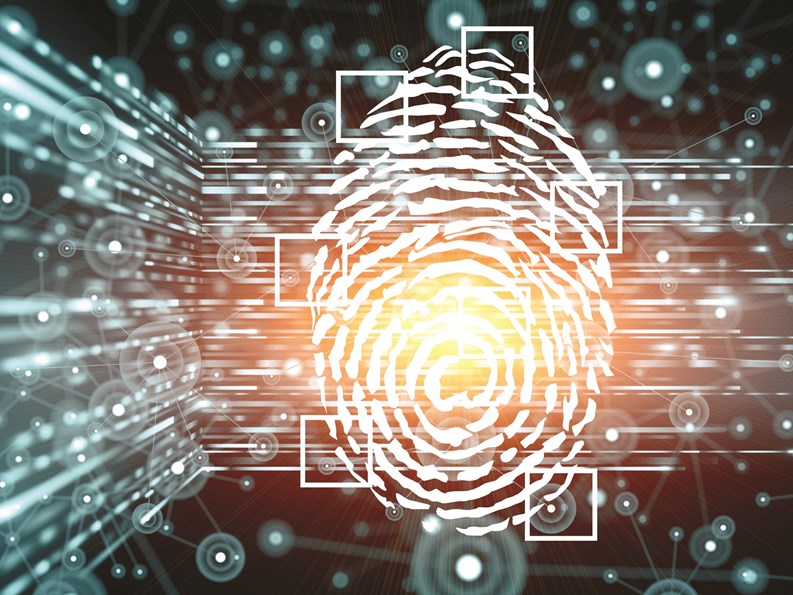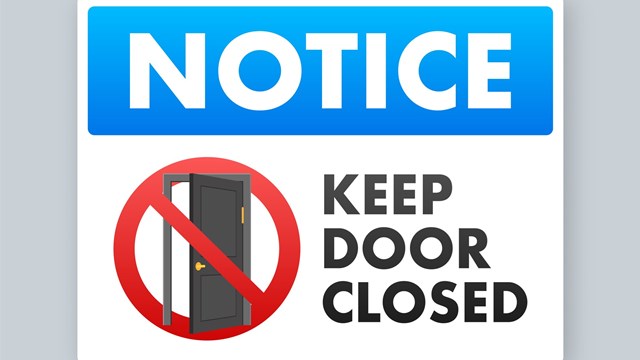After September 11th, one of the first things on most people's minds was beefing up security. Almost immediately, the presence of police and guards became much more visible in public places, and many buildings considered investing in tougher security measures of their own. But two years later, how much has security actually changed?
Opting for more stringent building security seemed like an obvious move, especially after the terrorist attacks. But in reality, it's not an option for everyone. One of the major reasons for this is sheer cost, says Richard Taylor, managing director of security for decision strategies at Fairfax Consultants Ltd., in Manhattan. It's up to the board to decide how much money should be budgeted for security, and many times, the costlier security systems and methods are simply beyond the budget's reach.
"Security is very, very expensive," says Taylor. "There are a lot of people who think they need a lot implemented, but won't do it when they find out the costs."
But is it okay to simply do nothing if you can't afford the latest in security measures? In a word: No. There are options for all budgets, from hiring a security person to monitor visitors, all the way up to having armed guards on hand. Boards must assess their building's particular needs against the available funds to see what type of security will work best.
According to Taylor, most buildings depend primarily on their doormen or concierge to handle the security. In one respect, that seems like a simple solution. After a short time on the job, the doorman or concierge usually knows everyone, and is aware of who belongs in the building and who doesn't.
In order to achieve a more secure building, it's not enough to simply have someone stationed at the door for part of the day. The problem, says Taylor, is that there are other access points to most buildings, and it's difficult to control areas without at least having cameras to monitor other entrances. "You really have to have a dedicated security person there, or an extensive camera system and access control," he says. But, he adds, this sometimes "doesn't really work well in residential [buildings]. The harder you make it for the bad guy to get in, the harder it may be for residents."
Taylor notes that card access - which requires that residents use a card to get on the elevator - works well for keeping intruders from traveling to a building's upper floors. "It's one of the better methods," he says. "You don't want [residents] walking through turnstiles, and this makes it easier to get to their floors." Something like a card access system adds an element of security while minimizing inconvenience to residents.
In many cases, buildings increased some of their manpower. "One building that just had doormen before [Sept. 11th] put an additional person on as a concierge," says Taylor. Having someone whose main job is to keep track of who enters the building, escorting visitors, delivery persons, and repair people to their floor helps reduce the chances that someone could slip in unnoticed. But even if you're short on funds, Taylor warns against trying to save money by simply increasing the responsibilities of whoever sits at your front desk, whether it's your doorman, maintenance person, or someone else. "I've found more and more buildings have put monitors at the front desk and added it to the responsibilities of doorman or concierge," says Taylor. "If you're giving a person a dual job to do - open doors, get cabs for people, and provide security, eventually the primary function will take precedence over security," Taylor explains. "If you put a dedicated security person there, that's his or her only job. That person would be paying a lot more attention."
Taylor advises using cameras that are constantly monitored. He also advises having a specific elevator for workers and other non-residents, restricted to specific hours. Your security person should either escort these people to where they have to go, or check up on them to make sure they're where they said they needed to go.
Although buildings with increased security have not necessarily dealt with terrorism-related threats since September 11th, there have been other benefits of updating or increasing security methods. Says Taylor, "We found that some of the procedures in place, like flashlights and emergency lights, helped during the [last August's] blackout. It's carry over from 9/11, so at least they had a plan, which I think before 9/11 didn't exist."
At The Tiffany at Westbury condominium in Westbury, Long Island, security concerns have arisen over specific incidents that occurred at the building. Within the last two years, there have been two attempted break-ins at two separate apartments in this senior citizen condo, in which residents are all 55 or older. Both times, intruders attempted to enter through the rear of the building, where residents on the ground floor have sliding doors.
After the first incident, the condo installed motion"“triggered floodlights, according to board president Al Wolfson. "We're currently looking into video cameras, and we also had a consultant come in who made some recommendations."
"At the main entrance, we have a video monitor," Wolfson continues. "[Visitors] have to ring the apartment bell, and [residents] can see who is coming in." This can be a very effective security measure, but only if used properly - our biggest problem has been getting residents to understand that you do not let people in unless you know who they are. That's where it gets lax. Also, if someone comes in behind them, they tend to just let them in."
In cases like this, it's vital that residents understand the importance of their role in preventing crime in their building. Wolfson adds that The Tiffany had a police officer deliver a seminar to residents on the subject of intruders. "He told the residents that a man could come in with a suit and tie, can look professional, but can be thief, or even a murderer," says Wolfson. "Some of the owners have put in their own alarm systems." But, he notes that neither of the two apartments involved in the attempted break-ins have installed security alarms.
"We are also looking at a video camera for the front entrance, in terms of costs." One of the condo's exterior features is also being upgraded. "We have a fence that opens up into the street, and we're changing it to a cyclone chain-link fence," says Wolfson. "A police officer will be able to shine a light on it and see all the way back."
After September 11th, there was an increase in the number of residential buildings requesting armed guards, who are specially trained as required by New York State, and background checked by the city, according to Mark Lerner, Ph.D., a criminologist and president of EPIC Security Corp., one of the few security companies that provide armed guards. Most others don't, says Lerner.
"Right after [the attacks], people doubled their spending. When nothing else happened, they cut back, but security is still higher than before," he says. According to Lerner, security in residential housing is up 20 to 25 percent overall, with a significant increase in the use of armed guards. These guards are armed most commonly with 9mm semiautomatic handguns. "In the past, those were only asked for by places like banks and financial institutions. Most places that already used unarmed guards increased [their staff to include] the use of armed guards," says Lerner. "There was a general increase in use of unarmed guards for vehicle patrols around facilities, looking for suspicious vehicles. Before [9/11], it was for vandalism and nuisance crimes, but now people are more concerned with terrorism."
Don't be fooled by what you might think an armed guard can provide. Though all guards are approved and licensed by the police department - which regulates armed guards - they aren't cops. "We don't have SWAT teams, and don't duplicate a police squad," Lerner says. "But in the few minutes between something happening and police arriving, a guard can prevent something more from happening. They're only there to protect property, people, and to deter crime." In fact, says Lerner, most of the guards' training is about not using their guns, which are only for self-defense. "A guard can't chase [a suspicious person]. He or she gets a description, calls police, and the police chase the person." He adds, "Armed guards cost a lot more, and in the past, people didn't want them because of liability. But now, buildings want to have fighting chance against a terrorist. If an armed guard is not present, many people could be killed."
Though an armed guard can't act as a cop, they are an effective deterrent, believes Lerner. "There's really no substitute for having a uniformed guard if you want to deter crime. If you have them visible, it works."
The key, agree both Lerner and Taylor, is to have a person present if you have security concerns, whether you hire a uniformed guard, a fully-armed guard, or another dedicated security person. "In reality, closed-circuit TV (CCTV) is a big part of a security program, but doesn't stop crimes, it only helps police solve them," says Lerner, referring to situations where buildings have installed CCTV to record areas, but don't have someone stationed to monitor them. This is evident in banks that decided to cut back on guards because they had CCTV. But bank robberies increased because the cameras don't work as a deterrent, says Taylor. He agrees that the electronic aspect - such as CCTV - is important, "but they haven't developed robots yet to replace security guards."
And even without a specific threat of terrorism, guards have still proven useful. "Most of the use of guards is still for pre-9/11 activities, like checking people in/out of buildings" and deterring crime in general, says Lerner. "Security is not a new concept. The old threats are still here, crime rates are lower, but it is at no level where people want to get rid of guards."
In the end, say the pros, it's up to boards to decide which method works best for their buildings. Not everyone needs or wants an armed security guard, but perhaps you want to go beyond having the usual multitasking front-desk person. Weighing your options and working within your budget (or making adjustments to it as necessary), as well as reminding residents to do their part, will set you on the way to taking the security measures that are appropriate for your building.







Leave a Comment